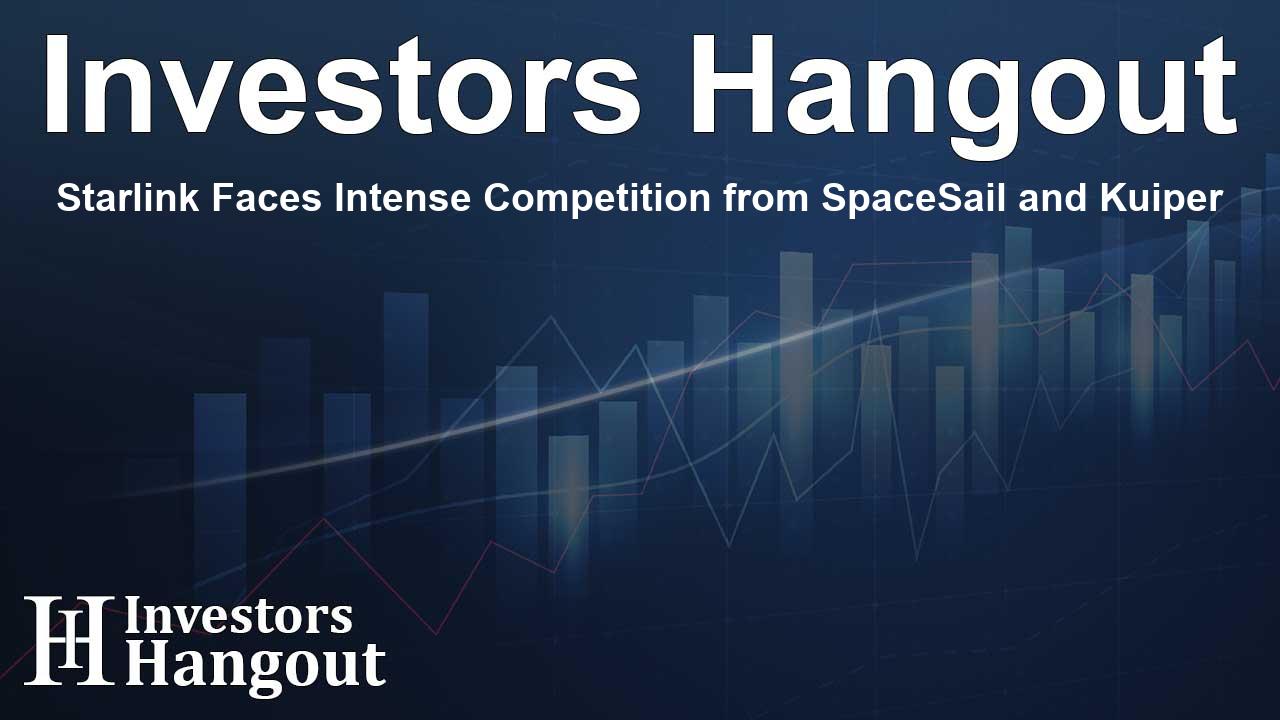Starlink Faces Intense Competition from SpaceSail and Kuiper

Starlink Competes in a Growing Satellite Internet Market
Tesla Inc. CEO Elon Musk’s Starlink is facing an increasingly crowded marketplace as challengers like China’s state-backed SpaceSail and Amazon founder Jeff Bezos’ Project Kuiper ramp up their operations.
New Developments from SpaceSail
Recently, SpaceSail, a company based in Shanghai, has made waves by signing agreements to break into international markets, such as Brazil, and has commenced operations in places like Kazakhstan. Their ambition includes deploying 648 low-Earth orbit (LEO) satellites by 2025 and a staggering 15,000 by 2030, which poses a serious challenge to Starlink's existing fleet of around 7,000 satellites.
Growing Demand for High-Speed Internet
The competition is heating up as Brazil considers partnerships with Project Kuiper and Telesat from Canada. This reflects a broader trend of increasing demand for reliable high-speed internet, particularly in remote areas and during crises like natural disasters.
Starlink's Track Record
Starlink's value has been highlighted during emergencies, notably providing vital communication services during Hurricane Helene in North Carolina. The Federal Communications Commission (FCC) has even granted SpaceX and T-Mobile emergency approval for direct-to-cell technology, showcasing Starlink's capabilities in critical moments.
A Landscape of Rapid Progress
The satellite internet race is driving technological innovation at impressive rates. China has filed 2,449 patents related to LEO satellite technology this year— a significant increase from just 162 filed in 2019. Antoine Grenier from Analysys Mason refers to this period as a “wild west,” suggesting that companies are positioning themselves ahead of tighter regulations that may come in the future.
Conclusion
With the stakes higher than ever, the battle for supremacy in satellite internet services continues to unfold. Companies like SpaceSail and Project Kuiper are not only expanding their reach; they are also forcing Starlink to innovate and adapt faster than ever before.
Frequently Asked Questions
What is Starlink?
Starlink is a satellite internet constellation being constructed by SpaceX to provide internet coverage globally, particularly in underserved areas.
Who are Starlink's main competitors?
Starlink's primary competitors include China's SpaceSail and Amazon's Project Kuiper, both of which are planning extensive satellite deployments.
How many satellites does Starlink currently have?
Starlink currently operates about 7,000 satellites in low-Earth orbit.
What impact do new competitors have on Starlink?
New competitors push Starlink to enhance its technology and service offerings to maintain its market position and attract more customers.
Why is satellite internet important?
Satellite internet is crucial for providing connectivity in remote areas, aiding in emergency situations, and improving accessibility to high-speed internet across the globe.
About The Author
Contact Hannah Lewis privately here. Or send an email with ATTN: Hannah Lewis as the subject to contact@investorshangout.com.
About Investors Hangout
Investors Hangout is a leading online stock forum for financial discussion and learning, offering a wide range of free tools and resources. It draws in traders of all levels, who exchange market knowledge, investigate trading tactics, and keep an eye on industry developments in real time. Featuring financial articles, stock message boards, quotes, charts, company profiles, and live news updates. Through cooperative learning and a wealth of informational resources, it helps users from novices creating their first portfolios to experts honing their techniques. Join Investors Hangout today: https://investorshangout.com/
The content of this article is based on factual, publicly available information and does not represent legal, financial, or investment advice. Investors Hangout does not offer financial advice, and the author is not a licensed financial advisor. Consult a qualified advisor before making any financial or investment decisions based on this article. This article should not be considered advice to purchase, sell, or hold any securities or other investments. If any of the material provided here is inaccurate, please contact us for corrections.
